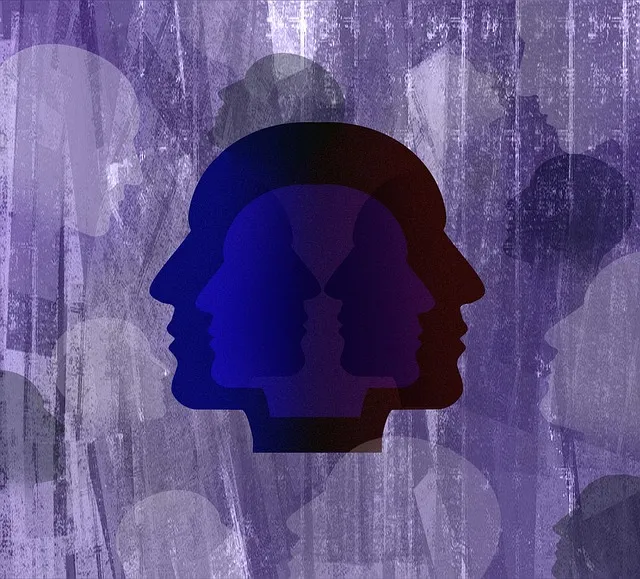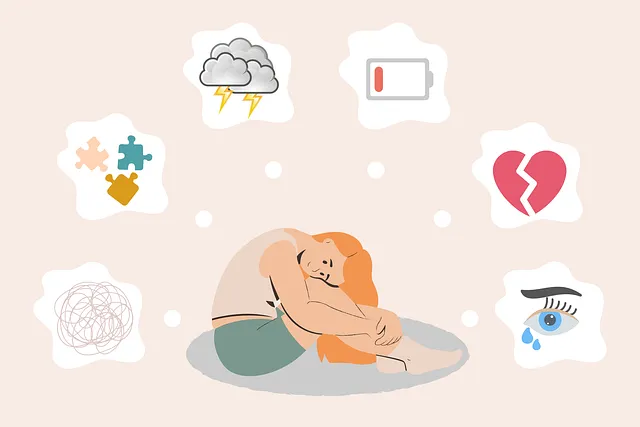In Castle Rock, stigma around mental illness hinders access to care. A community initiative tackles this by educating residents about mental health and promoting emotional well-being through workshops, awareness campaigns, and support groups. Kaiser plays a key role in expanding access to mental health services, offering tailored care and integrating innovative approaches. Continuous advocacy, educational programs, and engagement from local figures are essential for reducing stigma and encouraging proactive self-care practices, ensuring help is readily available for those in need in Castle Rock. To access Kaiser's mental health services, residents can utilize online resources and hotlines as initial coping skill development tools.
Mental illness stigma remains a significant barrier to individuals seeking help, often leading to delayed treatment and worse outcomes. This article explores various efforts aimed at reducing this stigma, highlighting successful initiatives like Castle Rock’s community-driven approach and the role of organizations like Kaiser in expanding access to mental health services. We discuss strategies for continuous support and advocacy, emphasizing how communities can foster a more inclusive environment for those dealing with mental illness. Learn how Castle Rock and Kaiser’s models can guide efforts to get mental health services to those who need them.
- Understanding Stigma: Its Impact on Mental Health Seekers
- Castle Rock: A Community-Driven Approach to Reducing Stigma
- Kaiser's Role in Expanding Access to Mental Health Services
- Strategies for Continuous Support and Advocacy
Understanding Stigma: Its Impact on Mental Health Seekers

Stigma surrounding mental illness can be a significant barrier for individuals seeking support and treatment, often leading to delays or avoidance of essential self-care practices. This societal stigma can manifest in various ways, from subtle discrimination to overt prejudice, creating an environment where people with mental health concerns may feel ashamed or embarrassed to reach out for help. For those trying to access mental health services through platforms like Kaiser, the impact can be profound. The process of seeking care, especially in a new or unfamiliar setting, can evoke feelings of vulnerability and fear, exacerbating existing anxiety related to their condition.
In Castle Rock and beyond, efforts to reduce stigma are crucial for fostering communities that prioritize emotional healing processes. Burnout prevention strategies for healthcare providers play a vital role here by promoting understanding and empathy. By educating both service providers and the general public about mental health conditions, we can begin to dispel myths and misconceptions. Incorporating these educational initiatives into local resources, such as how to get mental health services through Kaiser, ensures that individuals have access to accurate information, encouraging them to take proactive steps toward their emotional well-being.
Castle Rock: A Community-Driven Approach to Reducing Stigma

In many communities, mental illness stigma persists, creating barriers to individuals seeking necessary support and treatment. Castle Rock takes a community-driven approach to reducing this stigma by fostering open dialogues and promoting emotional well-being. This initiative involves various stakeholders, including local organizations, healthcare providers, and schools, working together to educate residents about mental health conditions. By integrating emotional intelligence into everyday conversations and implementing coping skills development programs, Castle Rock aims to destigmatize mental illness and encourage individuals to get the help they need through resources like Kaiser. The community’s concerted effort is a testament to how collaborative actions can significantly impact improving access to mental health services.
Through workshops, awareness campaigns, and support groups, Castle Rock empowers residents with emotional intelligence and coping mechanisms. These strategies not only help individuals navigate their own mental health journeys but also foster a supportive environment where others feel comfortable seeking assistance. By combining these efforts with the availability of resources like Kaiser’s mental health services, Castle Rock is making substantial progress in ensuring that its residents can access the care they deserve without fear of judgment or stigma.
Kaiser's Role in Expanding Access to Mental Health Services

Kaiser plays a pivotal role in expanding access to mental health services, especially in areas like Castle Rock. This organization is dedicated to breaking down barriers and reducing stigma by providing comprehensive care that incorporates both traditional therapy and innovative approaches. By offering services tailored to diverse communities, Kaiser ensures that individuals facing mental illness can receive the support they need.
For those looking to access mental health services through Kaiser in Castle Rock, there are various pathways available. The organization promotes proactive measures like stress management workshops and positive thinking initiatives to empower individuals with inner strength development techniques. These efforts not only help prevent mental health crises but also foster a more supportive and understanding environment for those seeking treatment.
Strategies for Continuous Support and Advocacy

Continuous support and advocacy are paramount in stigma reduction efforts for mental illness. One effective strategy is to promote Mental Health Awareness through educational programs, community events, and media campaigns that humanize experiences with mental health challenges. Engaging local leaders, celebrities, and individuals who have overcome these struggles can help foster empathy and understanding. Additionally, integrating Self-Care Practices into mainstream culture encourages proactive mental well-being, normalizing conversations around seeking support.
For those interested in accessing Kaiser services in areas like Castle Rock, online resources and hotlines play a crucial role in the initial step of Coping Skills Development. These tools provide immediate assistance, guide individuals to appropriate care, and offer continuous support throughout their mental health journey. By combining community outreach, self-help resources, and professional services, we can create an inclusive environment where help is readily available and stigma is increasingly irrelevant.
Mental illness stigma reduction is a multifaceted effort that requires community engagement, innovative initiatives like Castle Rock’s model, and increased access to quality mental health services, such as those offered by Kaiser. By understanding the profound impact of stigma on help-seeking behaviors, we can implement strategies that foster support and advocacy, ultimately creating a more inclusive society where individuals feel comfortable pursuing the mental health care they need. For those looking to access these services, utilizing resources like Castle Rock and Kaiser’s expanded access programs is a step towards breaking down barriers and prioritizing mental well-being.






